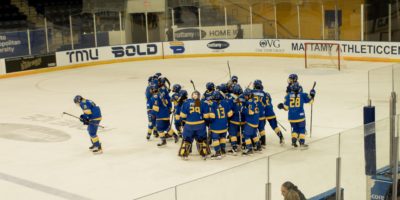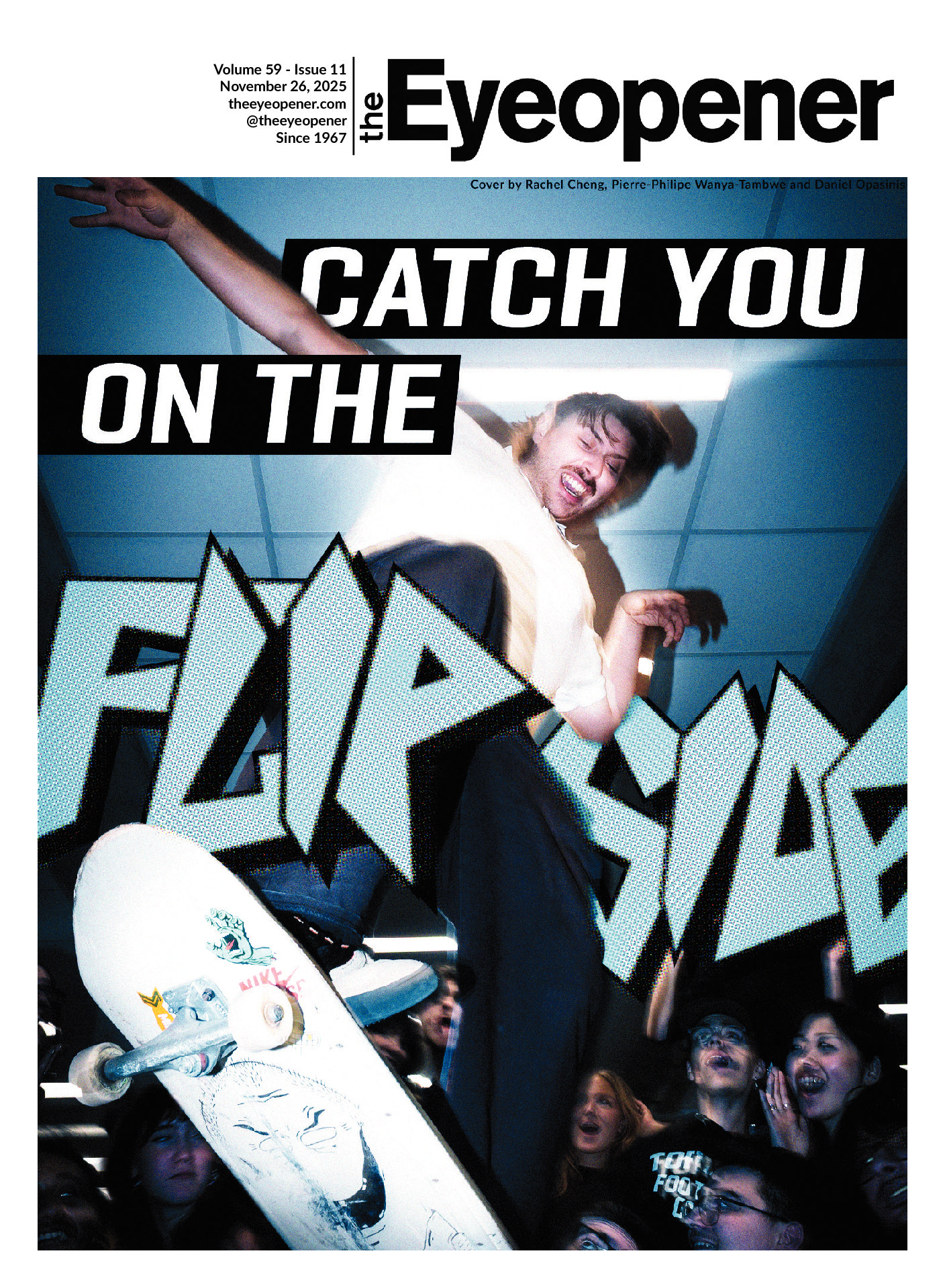by André Voshart
RSU held a public forum Monday on the alleged crimes of Coca-Cola in Colombia to encourage students to campaign against a campus-wide “preferred agreement” signed by Ryerson.
The allegations in the “Killer Coke” campaign involve “horrific human rights abuses” where Coke bottling companies have allegedly contracted paramilitary groups to threaten, intimidate and even murder employees attempting to unionize and bargain collectively.
Coke employee Luis Eduardo Garcia, who faced intimidation and imprisonment as member of the SINALTRAINAL Union in Columbia, spoke to about 80 students and faculty with the help of translator Paulina Vivanco.
“Only you will be able to stop the human rights abuses by Coke,” he urged. As a union member, he was labelled a “terrorist” and jailed for six months.
In March 1999, Ryerson signed a confidential “preferred agreement” with Coca-Cola. That means they won’t sell any products on campus that compete with Coke’s.
Ram Sivapalan, RSU’s vice president finance and services, started the campaign to get Coke off campus last year through the Working Students’ Centre. He is now the “point-man” on the initiative along with current WSC orientation co-ordinator Cameron Baker.
The five-year Coke deal was extended two years ago with nary a peep in the media.
John Corallo, director of ancillary services, said in a telephone interview before the forum that it was the first he’d heard of the campaign. But if Sivapalan and his counterparts have their way, it won’t be the last.
During Monday’s forum, Corallo’s e-mail address was written on a chalk board at the front of the room and those present were encouraged to contact him and pressure him to cancel the Coke deal.
The University of Guelph Students’ Union successfully terminated their exclusivity agreement with Coke because “there was enough pressure put on the administration,” Sivapalan said.
The Canadian Federation of Students, a national student lobby group of which RSU is a member, has taken an official anti-Coke stance.
Ryerson did not reveal how much the Coke deal is worth, but they did release figures showing how the money is spent. Student services, athletics, and bursaries received 37.5 per cent of the cash, while the other 62.5 per cent was put toward Ryerson’s capital debt.
McMaster and York universities’ Coca-Cola agreements are each worth $7.5 million over 10 years.
International Labor Rights Fund spokesperson Derek Baxter said in a meeting with RSU officials earlier in the week that these campaigns are important in getting corporations to take responsibility for their actions.
“At first (Coke was) denying everything. Now, they’re trying to say if it did happen they didn’t know about it.”
Ryerson politics professor Grace-Edward Galabuzi, a speaker at the forum, addressed his belief that freedom of choice is gone and public space is being colonized by Coke.
“It is critically important . . . that we get out of bed with Coca-Cola,” he said. “We have to assume personal moral responsibility” regarding what is happening in Columbia.
Ryerson President Sheldon Levy said the university is looking into the issue. But, as it stands, Ryerson is bound by a legal contract.
“You don’t go about breaking agreements, unless there is a really good reason to do so,” he said. “I’ve asked (Ryerson’s vice-president of administration and student affairs) Linda Grayson to review the situation.”
The new Student Campus Centre is exempt from the preferred agreement, because it had not been built at the time the agreement was signed. That means it can sell products that compete with Coke. However, there are only Coke machines in the building.
“We were told they have not signed (an agreement),” equity and campaigns organizer Denise Hammond said, “but they have a working relationship.”











Leave a Reply